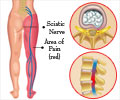Gabapentin Medication Information
Discover comprehensive details about Gabapentin, including its pronunciation, uses, dosage instructions, indications, and guidelines on how and when to take it or avoid it.
The updated prescription information covers potential side effects, precautions, warnings, and storage recommendations.
Additionally, explore the Gabapentin brands available in India and internationally, along with pricing information. For personalized advice, consult your healthcare provider.
Generic Name : Gabapentin Pronunciation : ga' ba pen tin ICD Code : Y46.6 Therapeutic Classification : AnticonvulsantsBrand Names or Trade Names of Gabapentin
India :
International :
Gabarone, Neurontin
Why is Gabapentin Prescribed? (Indications)
This medication is an anticonvulsant, prescribed for postherpetic neuralgia, and epilepsy.When should Gabapentin not be taken? (Contraindications)
Hypersensitivity.What is the dosage of Gabapentin?
Postherpetic NeuralgiaIn adults with postherpetic neuralgia, neurontin therapy may be initiated as a single 300-mg dose on day 1, 600 mg/day on day 2 in divided doses and 900 mg/day on day 3 in divided doses.
Epilepsy
Patients > 12 years of age: The effective dose of neurontin is 900 to 1800 mg/day and given in divided doses (three times a day) using 300 or 400 mg capsules, or 600 or 800 mg tablets. The starting dose is 300 mg three times a day.
How should Gabapentin be taken?
It comes as a tablet, capsule, and syrup to take by mouth, with or without food.What are the warnings and precautions for Gabapentin?
• Caution should be exercised in patients with history of depression, suicidal thoughts, kidney impairment, any allergy, who are taking other medications, children especially less than 3 years old, during pregnancy and breastfeeding.• It may cause drowsiness, dizziness, or blurred vision, do not drive a car or operate machinery while taking this medication.
• It may affect blood sugar level; monitor sugar level regularly.
• Patient may develop with increased risk of suicidal thoughts; watch them carefully.
• Monitor liver function, kidney function, and complete blood cell counts regularly while taking this medication.
What are the side effects of Gabapentin?
Body As A Whole - Fatigue, increased weight, back pain, swelling in the extremities, weakness, infection, headache, accidental injury and abdominal pain.Heart - Dilatation of blood vessels.
Gastrointestinal - Indigestion, dry mouth or throat, constipation, increased appetite, diarrhea, nausea, vomiting and flatulence.
Blood - Decrease in white blood cells.
Musculoskeletal - Muscle pain and fracture.
Central Nervous System - Drowsiness, dizziness, incoordination, night blindness, tremor, nervousness, memory loss, depression, abnormal thinking and twitching.
Respiratory - Runny nose and cough.
Skin - Abrasion, itching and rash.
Metabolic - Swelling in the extremities, weight gain and increased blood sugar.
Genitourinary - Impotence.
Eye and ENT - Blurred vision, eye inflammation, double vision and ear infection.


























